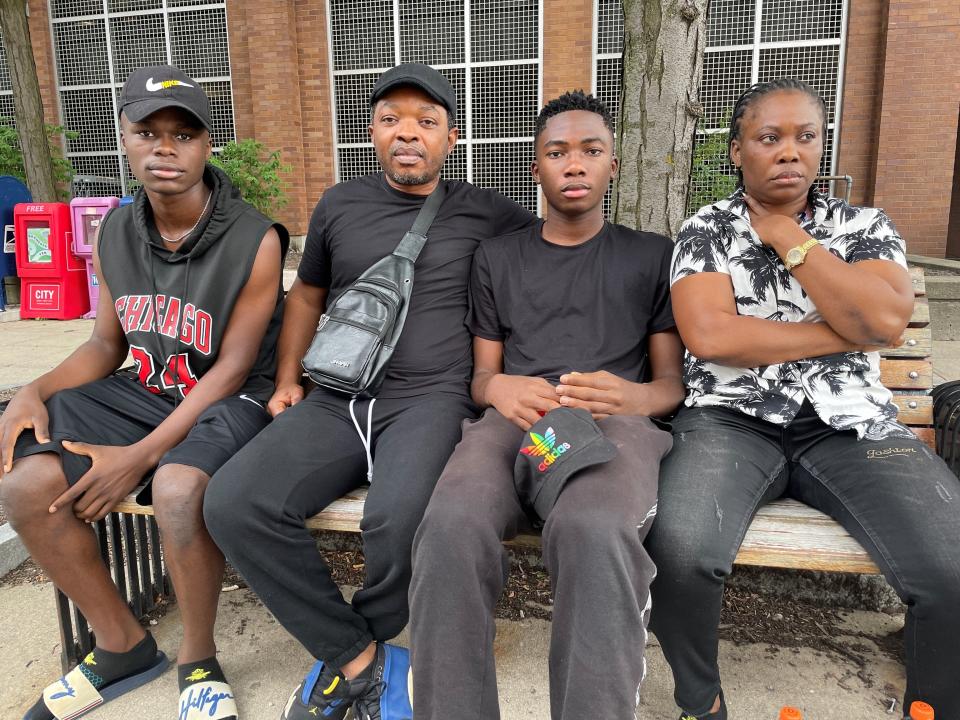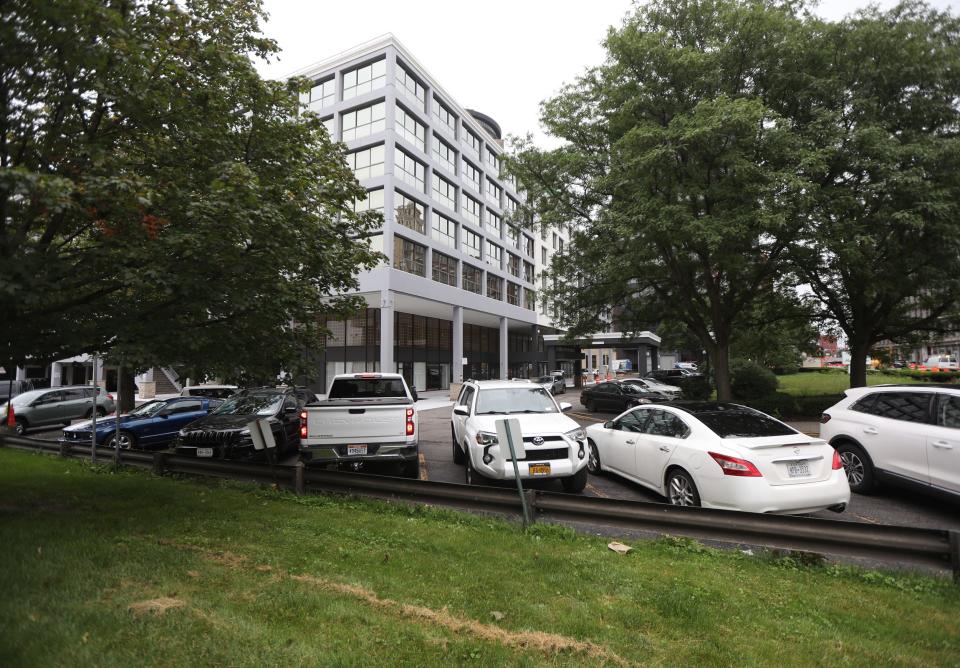'People were dying all around us': Angolan family seeking asylum in Rochester shares story
The journey that brought the Adolfo family halfway across the globe to a small unknown city in the northeastern United States began three years ago with a visit to the doctor in Angola.
Nadina Adolfo went in for a procedure at a hospital in Luanda, the capital of Angola, where she and her family lived. The doctor botched it and caused her grievous damage.
She and her husband, Leba, filed a complaint against the doctor. If they had known that she was family with some of the most powerful people in the Angolan government, they'd have kept their complaint to themselves, but by the time they knew that it was too late.
First the doctor made threatening phone calls demanding they withdraw the complaint, Leba said. They did so, but still the harassment persisted.
One day while Leba was at church, government officials came to their house and threatened to kill Nadina and their two 13-year-old sons, Eduâmio and Mateus.

"They were going to, I don't know, torture them, kill them," Leba said in French. "It was very risky living there with those problems on such a high political level."
And so, like hundreds of thousands of Angolans before them, Adolfos made the difficult decision to leave their home. They flew from Luanda to Addis Ababa, Ethiopia, and from there to Sao Paolo, Brazil. From Sao Paolo they made their way north, mostly walking through Central America and Mexico toward the United States border.
"We didn't know where we were, what country we were in, anything," Leba said. "People were dying all around us -- if you get sick, it's not like there's a doctor."
On April 6 they reached the United States border at California and formally requested asylum. There they spent five days in a detention center — the boys in one area, Nadina in the women's area and Leba with the men, with little room to sleep and no shower facilities, Leba said — and then boarded a flight to Maine, where a church had volunteered to put them up.
The church's offer, however, did not include a place to sleep. The family slept outside while searching unsuccessfully for shelter, Leba said, and then caught a ride to New York City, where they were processed as asylum seekers for a third time.
They shuttled from a shelter in Manhattan to another in Brooklyn to a different one in Manhattan. And then last Monday, an unexpected announcement: Pack your bags. You're leaving New York City.
It was a six-hour bus trip to Rochester with 73 other asylum seekers. They saw few houses or towns along the way, Leba said, and it was dark by the time they arrived at the Holiday Inn on State Street.
"We didn't know where we were going," Leba said.
That was last week.
Political and community leaders in Rochester have spoken kind words about the asylum seekers arriving here, though they've also pledged not to spend any local public resources helping them. The Holiday Inn has space and permission to take in around 140 more people, but a county spokesman said Monday there's no news now about when they might arrive.
Many asylum seekers speak Spanish, but others are like the Adolfo family: Leba speaks French, while his wife and sons speak only Portuguese, making communication difficult.

Mostly they stay in their room or else make short forays around downtown Rochester, searching for phone cards or other essentials.
"It's been OK, but we're a little bit isolated," Leba said. "We don't really know where we are or who to ask for things."
There are many other things they don't know about their situation. How long will they be at the Holiday Inn? When will they be able to work, and how will the boys fare when they begin school next month? When will their asylum case be decided, and what will the future hold after that?
"We're trying to find refuge," Leba said. "It's the state who sent us here. We're just trying to make our way."
Hochul sends National Guard
Gov. Kathy Hochul Tuesday agreed to a request from Monroe County Executive Adam Bello to deploy the National Guard to help with the security and public health aspects of the asylum seekers' stay in Rochester.
Bello's request came "after observing recent occurrences in other counties hosting asylees" — a reference to apparent shortcomings in Erie and Albany counties by DocGo, the for-profit company with whom New York City has contracted to care for the asylum seekers.
There was no word about how many National Guard members will be coming, when they will arrive or what their specific assignment will be.
The county also confirmed that 20 of the original 77 asylum seekers who arrived in Rochester have been relocated back to New York City at their own request. The relocations as well as the request for National Guard assistance were first reported by WXXI News.
This article originally appeared on Rochester Democrat and Chronicle: Angolan family among asylum seekers at Rochester NY Holiday Inn

